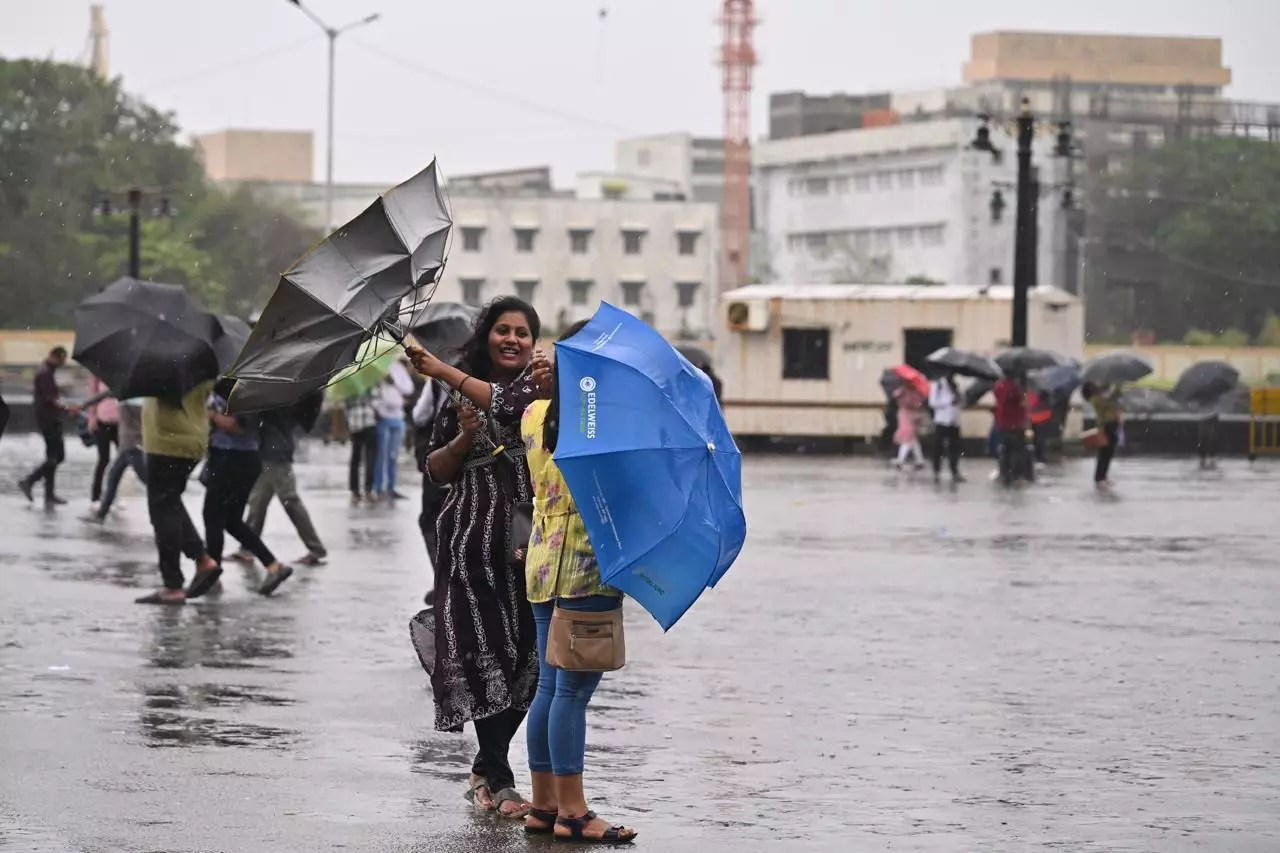Water supply management is one of the most pressing challenges in Mumbai, a city of over 20 million people. Rapid urbanization, an aging infrastructure, and the unpredictable monsoon season make it difficult for the local government to ensure adequate water distribution to all citizens. However, in 2024, data science emerged as a transformative solution to these issues. By harnessing advanced analytical tools and techniques, data scientists can help the city make smarter decisions, optimize resources, and predict potential water shortages.
This article explores how data science addresses Mumbai’s water supply challenges and what the future holds. It also explains how a data scientist course or a data science course in Mumbai can give you the necessary skills to contribute to solving these challenges.
The Growing Water Crisis in Mumbai
Mumbai’s water situation has become worse over time owing to a mix of natural and human reasons, including:
- Urban Population Growth: Mumbai’s rapidly growing population has increased water demand far beyond what the current infrastructure can support.
- Old Infrastructure: Leaks, illegal connections, and outdated pipes contribute to massive water losses.
- Unreliable Monsoon: Mumbai relies heavily on monsoons for water supply, but inconsistent rainfall patterns due to climate change have made water scarcity a more frequent issue.
As a result, some parts of the city face regular water cuts, and slum areas often suffer from inadequate access to clean water. Traditional approaches to addressing these challenges have proved insufficient, but data science offers a new approach.
How Data Science Can Help Tackle Water Supply Issues
Data science involves using algorithms, statistical methods, and machine learning to analyze large datasets. When applied to water management, it can offer several advantages:
1. Optimizing Water Distribution
One critical application of data science in Mumbai’s water supply is optimizing distribution networks. By analyzing data from sensors placed in water pipes and reservoirs, authorities can monitor water levels, pressure, and flow rates in real time. This allows them to detect leaks, predict maintenance needs, and distribute water more efficiently.
2. Predicting Demand and Supply Patterns
Data science can help predict short-term and long-term water demand based on population growth, weather patterns, and economic activities. Using historical data and machine learning models, it is possible to forecast how much water will be needed in different city areas at other times of the year. That enables the authorities to better plan and allocate resources, preventing shortages and ensuring more equitable distribution.
3. Monitoring Water Quality
Ensuring the quality of water supplied to residents is as important as managing its quantity. Sensors and IoT devices installed at various points in the supply chain collect data on water quality parameters such as pH, temperature, and contamination levels. Data scientists can analyze this information to identify areas where the water quality might be compromised, allowing for quicker corrective actions to be taken.
4. Reducing Water Losses
In Mumbai, a significant portion of the water supply is lost due to leaks and illegal tapping. Data scientists can analyze real-time data from pipelines and reservoirs to detect anomalies in water pressure, flow rates, and other factors that indicate leaks. The city can take preventive measures by predicting where leaks are likely to occur, reducing water loss, and improving overall efficiency.
5. Improving Rainwater Harvesting
Given Mumbai’s reliance on monsoons, rainwater harvesting is crucial. Data science can optimize this process by analyzing weather data, predicting rainfall, and determining the best locations for water storage facilities. In addition, machine learning models can predict how much water can be collected and stored, helping the city make informed decisions about water conservation during the dry season.
Case Studies: Data Science in Action
Several cities worldwide have already begun using data science to tackle similar challenges. Mumbai can learn from these examples to build its intelligent water management system.
1. Singapore’s Smart Water Grid
Singapore has implemented a smart water grid that uses sensors, real-time data analytics, and predictive models to manage its water supply. The system helps reduce water losses, ensures better distribution, and maintains water quality. Mumbai could adopt a similar approach by integrating more sensors into its water infrastructure.
2. Barcelona’s Water Distribution Model
Barcelona uses advanced data science techniques to optimize its water distribution network. The city’s system analyzes real-time data on water demand, infrastructure conditions, and weather forecasts to improve the efficiency of its water supply. Mumbai’s municipal authorities could use a similar strategy to tackle water distribution problems.
How to Become a Data Scientist Solving Water Supply Issues
Becoming a data scientist is a great career choice if you want to contribute to solving Mumbai’s water challenges. The demand for skilled professionals in this field is growing as more industries adopt data-driven solutions. Enrolling in a data scientist course can help you gain the skills and knowledge necessary to make an impact.
Critical Skills to Learn:
- Data Analysis: Learn to interpret large datasets to identify patterns, trends, and solutions.
- Machine Learning: Understand how to build predictive models to forecast water demand, detect leaks, and optimize distribution.
- Programming: Proficiency in Python, R, or similar languages is essential for working with data science tools.
- Statistical Methods: Learn how to apply statistical techniques to real-world water management challenges.
Choosing a Data Science Course in Mumbai
There are several online and offline options for taking a data science course in Mumbai. When choosing a course, look for programs that offer:
- Hands-on Training: Ensure the course includes practical projects, preferably related to real-world problems like water supply management.
- Experienced Instructors: Learning from professionals who have industry experience can provide valuable insights.
- Comprehensive Curriculum: The course should cover essential data science topics, including machine learning, data visualization, and programming.
Career Opportunities for Data Scientists in Mumbai
Once you complete a data scientist course, you can work with government agencies, private companies, or NGOs focused on solving water supply challenges. Other opportunities include working with innovative city projects, environmental organizations, or technology firms offering data solutions for urban management.
The Future of Water Supply Management in Mumbai
Data science is set to play a vital role in improving water supply management in Mumbai. By using predictive models, real-time data analytics, and machine learning, the city can move towards a more sustainable and efficient water distribution system. However, attaining these objectives requires coordination among the government, the commercial sector, and qualified experts, especially data scientists.
Mumbai’s water crisis is a complex issue that will not be solved overnight, but with the right technological tools and human expertise, there is hope for a better future. When combined with innovative policies and infrastructure upgrades, data science offers the most promising path forward.
Conclusion
Mumbai’s water supply challenges are daunting, but they are manageable. Data science allows the city to manage its resources better, optimize distribution, and predict future needs. As more data-driven solutions are adopted, the potential for a more equitable and reliable water supply grows.
For individuals interested in making a difference, enrolling in a data science course in Mumbai is an excellent step towards acquiring the skills needed to tackle such pressing issues. By learning how to analyze and interpret complex datasets, future data scientists can contribute to making Mumbai a more sustainable and livable city.
The future of water management lies in intelligent technology and innovative minds—together, we can ensure that Mumbai’s water supply meets the demands of its growing population.
Business Name: ExcelR- Data Science, Data Analytics, Business Analyst Course Training Mumbai
Address: Unit no. 302, 03rd Floor, Ashok Premises, Old Nagardas Rd, Nicolas Wadi Rd, Mogra Village, Gundavali Gaothan, Andheri E, Mumbai, Maharashtra 400069, Phone: 09108238354, Email: enquiry@excelr.com.




